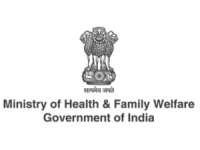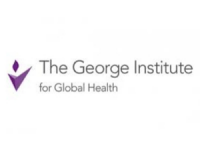


Mhealth As An Enabler For Health Systems Strengthening
Digital Technologies for Health and mobile health tools in particular have immense potential in strengthening health systems for enabling countries to achieve Universal Health Coverage and ensuring health for all. Digital Technologies has also been recognized as one of the key contributors towards achieving Sustainable Development Goals (SDGs) by 2030. It is widely recognized that India is a leader in implementing digital health interventions for health systems strengthening and has played a key role in positioning mhealth on the global health agenda. · India led the Digital Health Resolution in the 71st World Health Assembly in May 2018 at Geneva and highlighted global attention to the potential, challenges and opportunity related to Digital Health Technology and the need for collaboration on the issue globally.
India successfully hosted the Fourth Summit of Global Digital Health Partnership (GDHP) in February 2019 and the International Digital Health Symposium and exhibition on 27th February, 2019 in collaboration with the World Health Organization. This event was attended by 34 countries. During this meeting, India led the drafting and adoption of the Delhi declaration on digital health. Delhi Declaration on Digital Health for sustainable development was adopted by the GDHP member countries and India has further developed the National Digital Health Blueprint which outlines the implementation strategies and framework.
The National Digital Health Blueprint articulates an ecosystem vision for India, given the importance of mobile networks and the role of mobile internet as a key enabler for empowering citizens in accessing essential health services, the mhealth track during the India Mobile Congress 2019 will see the convergence of citizen representatives, healthcare, information technology and communications ecosystem stakeholders along with the governmental agencies. This track aims to articulate a vision for health delivery transformation leveraging mhealth and develop an implementation outline that is multi sectoral, participatory and envisages serving as the integral backbone and neural network of the national digital health ecosystem.
Mhealth Conference Agenda
Health systems face a number of challenges in ensuring that every citizen is able to access the essential health services irrespective of where they live, traditionally labelled as the last mile delivery constraints. In recent years, the telecommunication networks along with drastic reduction in the cost of ownership of mobile phones coupled with highly affordable mobile internet services has resulted in transformation of how most Indians connect with each other and with providers of essential services. This first mile connectivity offered by the mobile telecommunication networks provides an unprecedented opportunity to enable the ecosystems for healthcare transformation. Information asymmetries are a significant contributor to health seeking behaviours, targeted health communications will enable citizens to seek and access healthcare in an empowered manner than ever before. This session will cover the broad aspects of the transformational levers that could be implemented in the Indian and regional settings to enable the health systems towards universal health coverage by strengthening the health systems through the power of technology and innovations.
Objectives
1. Key Ecosystem enablers identified
2. Interventions that would support the development and
implementation of the Ecosystem
3. How can telecommunication networks support – expectations
from the key stakeholders
Enabling the Ecosystem for Healthcare Transformation: Role of Communication Technologies
Chair: Shri Ajay Prakash Sawhney, Secretary, MeitY
Moderator: Dr. Ivan George, Johns Hopkins University
10:00am
Welcome
Rajan Mathews/Grace Mathews
10:02am
India’s Digital Health Vision : Ministerial Address
Hon’ble Minister Dr Harsh Vardhan (TBC)
10:15am
Futuristic Mobile Technologies including 5 G and its promise for health care services delivery
Malcom Johnson, Deputy Secretary General, International Telecommunications Union, Geneva
10:35am
Global Surgery and the Neglected Surgical Patient – the palpable promise of technology
Prof. Adrian Park, Professor and Chairman, Department of Surgery, Anne Arundel Health System
10:55am
Transforming healthcare through technology and enhancing citizen engagement
Ganesh Kathiresan, VP, Digital Healthcare, Reliance Jio
11:05 am
The vision of affordable healthcare in India, using economies of scale: Opportunities offered by Mobile Health and emerging technologies
Dr Devi Shetty, Chairman, Narayana Health
11:25 am
IT and Telecom infrastructure as the backbone for the first mile connections for health delivery : GOI vision for health delivery transformation
Shri Ajay Prakash Sawhney, Secretary, MeitY
The National Health Policy (NHP) 2017 had articulated a vision for ‘health and wellbeing for all at all ages, Citizen-centricity, quality of care, improved access and health for all are aspirational goals of the national health policy. The National Digital Health Blueprint 2019 outlines the framework to achieve these goals by leveraging the power of the digital technologies. In the Indian context, a comprehensive and interoperable digital architecture is required as the pivotal pillar in achieving this vision. The National Digital Health Blueprint (NDHB), provides an architectural vision towards building this ecosystem, it further articulates specific guidance on its implementation. Any ecosystem is as efficient as the effectiveness of its individual components, recognising the need for synergistic approaches towards building this ecosystem, this session will bring key stakeholders from across Government, health care delivery establishments, technology and communication networks, the vibrant entrepreneurs and representatives from the end user communities. This session will articulate a road map towards how each of these components will contribute towards building this ecosystem.
Objectives
1. Building blocks for the National Digital Health
Ecosystem
2. Opportunities, roles and responsibilities of each stakeholder
3. What immediate next steps as actionable for the ecosystem stakeholders
4. Policy provisions and potential partnerships initiated
National Digital Health Blueprint – Building the Ecosystem : Policy and Partnerships
Chair: Dr V K Paul
Moderator : Dr Oommen John, George Institute for Global Health
11:30 am
Overview of Health Systems Transformation in India and role of technology
Dr V K Paul, Member (Health), Niti Aayog (TBC)
11:40 am
WHO Digital Health Guidelines – Implementation experiences from LMICs
Dr. Alain Labrique, Director, JHU Global mHealth Initiative Johns Hopkins University
12:00 pm
Achieving Universal Health Coverage : Innovations for Ayushman Bharat/ PM JAY services delivery
Dr. Indu Bhusan, CEO, National Health Authority (TBC)
12:10 pm
Emerging Technologies and healthcare transformation – implications for NDHB
Preetam Maloor, International Telecommunications Union, Geneva
12:25 pm
Using Mobile technologies to save lives
Piyush Tewari, Founder and CEO of Save LIFE Foundatio
12:40 pm
Role of the Industry in supporting the Ecosystem and expanding its reach
Gaurav Laroia, Senior Vice President, Biocon
12:55 pm
Innovations for healthcare transformation
Sureshkumar R, CTO CCS India & Digital Incubators at GE-Healthcare
Summary and way forward
Representative, MoHFW
Health systems face a number of challenges in ensuring that every citizen is able to access the essential health services irrespective of where they live, traditionally labelled as the last mile delivery constraints. In recent years, the telecommunication networks along with drastic reduction in the cost of ownership of mobile phones coupled with highly affordable mobile internet services has resulted in transformation of how most Indians connect with each other and with providers of essential services. This first mile connectivity offered by the mobile tele communication networks provides an unprecedented opportunity to enable the ecosystems for healthcare transformation. Information asymmetries are a significant contributor to health seeking behaviours, targeted health communications will enable citizens to seek and access healthcare in an empowered manner than ever before. This session will cover the broad aspects of the transformational levers that could be implemented in the Indian and regional settings to enable the health systems towards universal health coverage by strengthening the health systems through the power of technology and innovations.
Objectives
1. Key Ecosystem enablers identified
2. Interventions that would support the development and
implementation of the Ecosystem
3. How can telecommunication networks support – expectations
from the key stakeholders
Enabling the Ecosystem for Healthcare Transformation: Role of Communication Technologies
Chair: Shri Ajay Prakash Sawhney, Secretary, MeitY
Moderator: Dr. Ivan George, Johns Hopkins University
10:00am
Welcome
Rajan Mathews/Grace Mathews
10:02am
India’s Digital Health Vision : Ministerial Address
Hon’ble Minister Dr Harsh Vardhan (TBC)
10:15am
Futuristic Mobile Technologies including 5 G and its promise for health care services delivery
Malcom Johnson, Deputy Secretary General, International Telecommunications Union, Geneva
10:35am
Global Surgery and the Neglected Surgical Patient – the palpable promise of technology
Prof. Adrian Park, Professor and Chairman, Department of Surgery, Anne Arundel Health System
10:55am
Transforming healthcare through technology and enhancing citizen engagement
Ganesh Kathiresan, VP, Digital Healthcare, Reliance Jio
11:05 am
The vision of affordable healthcare in India, using economies of scale: Opportunities offered by Mobile Health and emerging technologies
Dr Devi Shetty, Chairman, Narayana Health
11:25 am
IT and Telecom infrastructure as the backbone for the first mile connections for health delivery : GOI vision for health delivery transformation
Shri Ajay Prakash Sawhney, Secretary, MeitY



